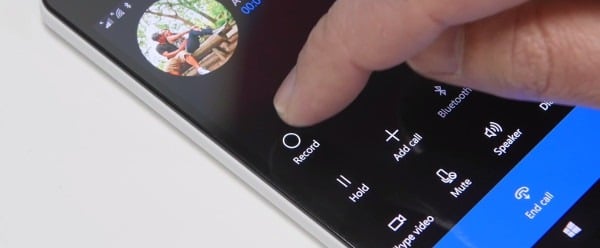Recording a telephone call between two people, both present but without the other’s knowledge, is lawful and does not require any authorization from the judge or the police. Carrying a bug or a simple smartphone with you with the voice recording application in “on” mode is not illegal. The audio file can be used to file a complaint or in a civil judgment (compensation, debt collection, etc.) However, what is illegal is to leave a tape recorder in a room and go to another, hoping that the “intercepted” feel free to speak without fear of being controlled. But is it legal to record a phone call? If the other person’s phone is placed right in his home, you could commit a crime of invasion of privacy. We try to clarify all these cases of privacy violation or alleged such.
What is a wiretapping
Although we often speak of “telephone interception” with reference to the recording of a call made by anyone, in reality, the “interceptions” are only those carried out by the judicial police with the authorization of the judge. These interceptions, aimed at seeking evidence against the suspect, can only take place in compliance with certain limits (of space, time, and for specific and serious crimes).
However, if the police have their hands tied, the private citizen does not have them and is always free to record a conversation or a phone call without having to ask the authorities for permission. We will see shortly how this activity must take place in order to be lawful.
Record a conversation without anyone present
It is permissible to record a conversation that is held between several people and without the knowledge of all or only of some. The speaker also accepts the risk of being registered, says the Supreme Court. However, it is necessary that:
- the person who is recording participates in the conversation. He cannot just leave the recorder and walk away, thus making others assume that they are free to say what they want;
- the registration does not take place in the places of private residence of the “victim.” For example, it is illegal to go to a friend’s house or his private office and turn on the recorder. Instead, you should ask him to go down to the street or go to the bar and only there, in a public place, activate the bug. You can also record what guests say in your own home.
Record a phone call without the other’s knowledge
Just as it is legal to record a conversation between those present and without their knowledge, recording a phone call with another person unaware of being “intercepted” does not violate the privacy of others and, therefore, does not constitute a crime (that of “Unlawful interference in private life”). This is because, according to the Supreme Court and, the recording does nothing but fix, on an electronic memory, what is already “ours” and is part of our sensorial heritage, having been picked up by our hearing and stored in our memory. In short, since the conversation becomes part of our wealth of knowledge, the recording of a call on an audio or video file is nothing more than a repetition of what our own memory has already accomplished- the storage of a historical fact to which we participated directly. After all, banning recording would be more or less like commanding “forget a conversation.” Which is absurd.
To quote the words of the Supreme Court, the phonographic recording of a conversation or a communication by one of the interlocutors is not attributable, although performed clandestinely, to the notion of interception, but constitutes a form of phonic memorization of a historical fact, of which the perpetrator may legitimately dispose, including for evidence purposes in the trial. To this end, nothing, noting that it was the judicial police that provided the private individual, who carries out the registration, with the instrument for registration.
This was also the orientation expressed by the United Sections of the Cassation in the famous “pioneering” ruling of 2003. The recording of the interview, as representative of a fact, integrates the documentary evidence.
Can I let others hear or post the phone conversation?
While it is legal to record a phone call, it is not legal to publish its content. Therefore, the audio cannot be played by an audience of listeners (for example, during a condominium meeting), the file cannot be published on the internet or on a social network (unless the sound is distorted so as to do not trace the author of the declaration and any other names mentioned in the conversation are obscured). In fact, the law only prohibits the dissemination of the conversation unless there is the consent of all those who participated in it (and not just one).
It is clearly legitimate to have the contents of the telephone recording heard by a judge, a carabiniere, a policeman, and any other authority responsible for protecting the citizen’s rights.
For example, you can have the file heard during disciplinary proceedings before your employer; in a separation or divorce case to prove, for example, another’s confession of treason; or in a claim for the recovery of a claim, to prove the debtor’s admission.
It may seem strange, but the Privacy Code allows the recording of a phone call made without the knowledge of the other conversant. This is, in fact, necessary “to assert or defend a right in court, provided that the data are processed exclusively for these purposes and for the period strictly necessary for their pursuit.”
Can a videoconference be recorded?
The same rules as for the telephone or smartphone also apply to video conferences. Therefore, it is permissible to record a call via Skype or any other application for video messages, including WhatsApp, Messenger, Zoom, or others.

